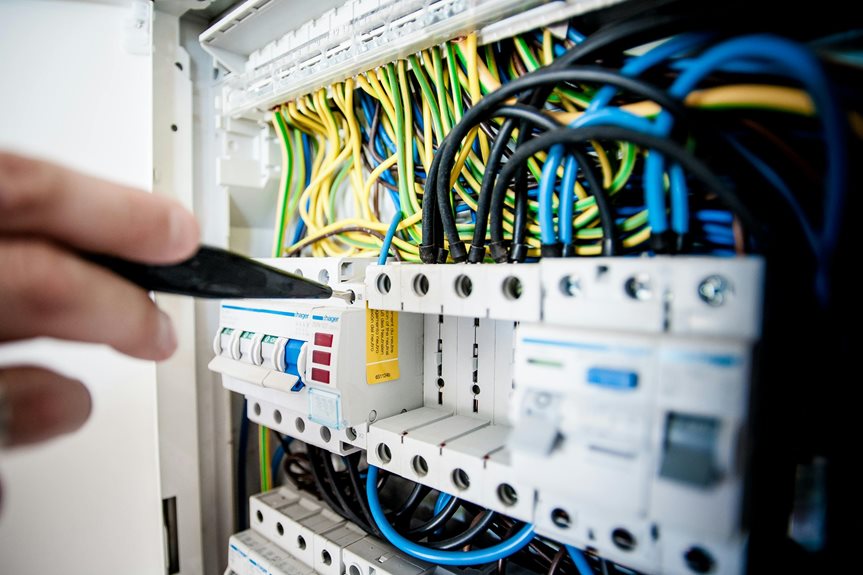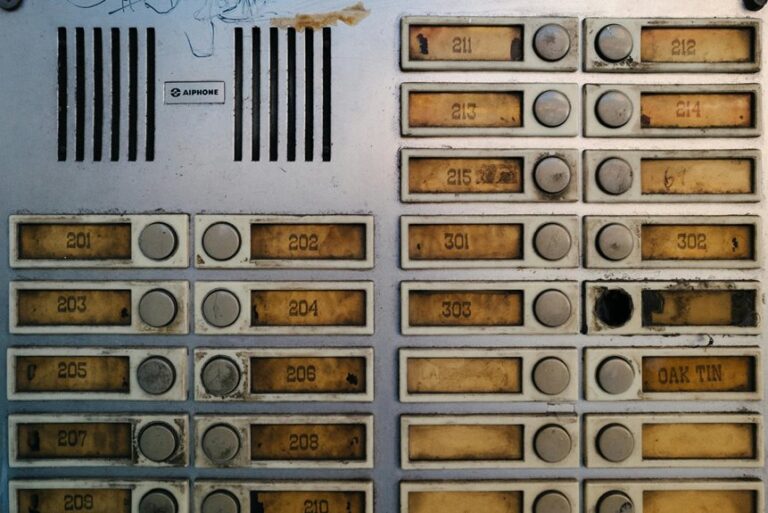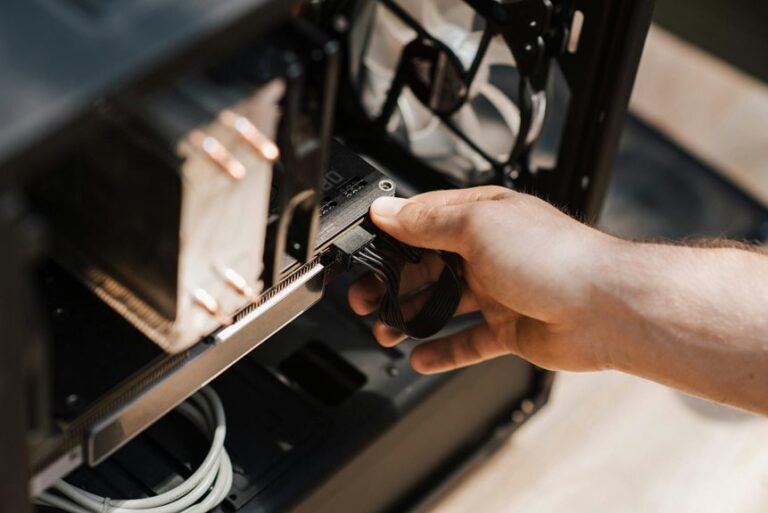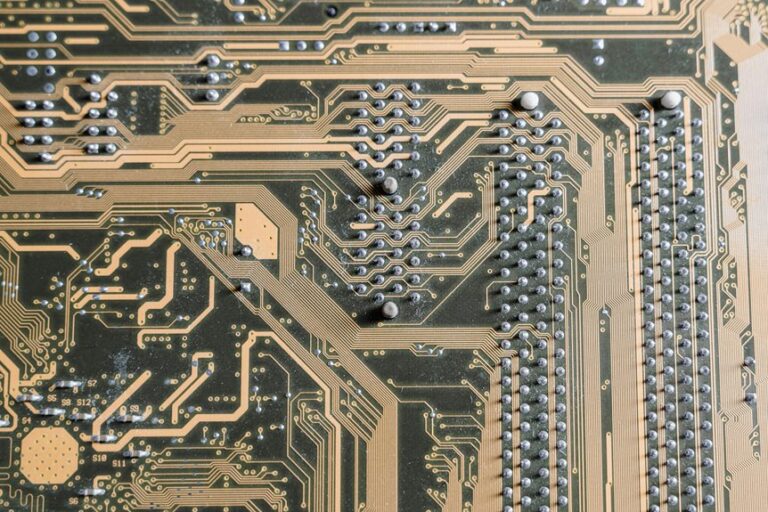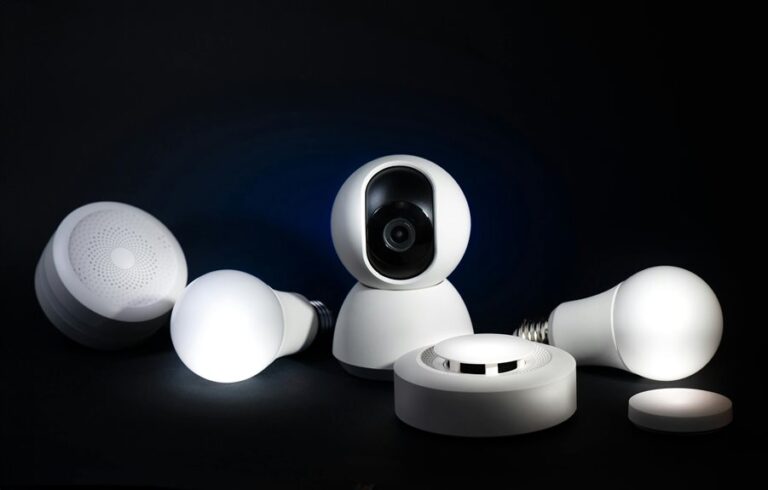When you consider the complexities of commercial electrical systems, it's essential to understand that proper installation and maintenance can greatly impact safety and efficiency. You can't afford to overlook routine inspections or energy-efficient solutions, as both play an important role in reducing operational costs and ensuring compliance with safety standards. Engaging qualified electrical contractors not only mitigates risks but also enhances the reliability of your infrastructure. So, what factors should you prioritize when selecting a service provider to meet your specific needs?
Importance of Commercial Electrical Services
Recognizing the critical role of reliable electrical systems in commercial settings is essential for guaranteeing operational efficiency and safety. You know that a well-designed electrical infrastructure isn't just a convenience; it's a cornerstone of business functionality. Faulty wiring or inadequate power supply can lead to costly downtime and safety hazards.
Proper commercial electrical services guarantee that your systems meet regulatory standards and are tailored to your specific operational needs. Regular inspections by qualified professionals help identify potential issues before they escalate, minimizing risks of electrical failures and fires.
You can't overlook the importance of preventive maintenance; it greatly extends the lifespan of your equipment and enhances overall performance.
Moreover, investing in energy-efficient solutions not only reduces operational costs but also bolsters your corporate responsibility towards sustainability. Upgrading to advanced systems, such as smart controls, can optimize energy usage, leading to considerable savings. Additionally, partnering with expert electricians in Rancho Cucamonga ensures that you receive the highest quality of service and expertise tailored to your commercial needs.
Types of Commercial Electrical Installations
When planning commercial electrical installations, you'll need to focus on two key areas: lighting system installations and power distribution solutions.
Each of these components plays a critical role in ensuring safety, efficiency, and functionality in your workspace.
Understanding the specific requirements and standards for these systems is essential for peak performance and compliance.
Lighting System Installations
In modern commercial spaces, efficient lighting system installations play an essential role in enhancing both functionality and safety. Properly designed lighting not only improves visibility but also contributes to the overall ambiance of your environment.
Here are three key types of lighting systems you might evaluate for your installation:
- Ambient Lighting: This creates a uniform light level throughout the space, guaranteeing safety and comfort for occupants.
- Task Lighting: Focused on specific areas, task lighting enhances visibility for detailed work, reducing the risk of accidents.
- Accent Lighting: Used to highlight particular features or products, accent lighting adds visual interest and can guide customer attention.
When you're planning your lighting system installation, it's vital to assess factors like energy efficiency, compliance with safety codes, and the specific needs of your space.
Choosing LED fixtures can reduce energy consumption and maintenance costs over time. Always work with certified professionals to verify that installations meet local regulations and industry standards.
This approach not only assures safety but also maximizes the lifespan and effectiveness of your lighting systems, creating a well-lit, productive environment for everyone involved.
Power Distribution Solutions
Effective power distribution solutions are essential for maintaining the electrical integrity of commercial spaces. You need to guarantee that your electrical system can handle the demands of your equipment while minimizing risks. Central to this is the installation of distribution panels, which serve as the control hub for your electrical supply.
When selecting a distribution panel, consider the load requirements of your facility. You might opt for a main distribution panel or sub-panels, depending on your specific needs. Each panel must be properly sized and rated to handle peak loads without overheating.
Circuit breakers play an important role in protecting your circuits from overloads. Make sure you use breakers that match the amperage and voltage requirements of your system.
Additionally, implementing a structured cabling system can enhance your power distribution, facilitating better organization and reducing the risk of electrical hazards.
Regular inspections and maintenance of your power distribution system are also essential. This includes checking for loose connections, corrosion, and verifying that all components comply with safety standards.
Routine Electrical Maintenance
Routine electrical maintenance is essential for ensuring the safety and efficiency of your commercial systems.
Regular inspections help you identify potential hazards and prevent costly downtime.
Implementing preventative maintenance strategies can address common electrical issues before they escalate, protecting both your assets and personnel.
Importance of Regular Inspections
Regular inspections of your electrical systems can help catch potential issues before they escalate into serious hazards. By prioritizing regular inspections, you not only enhance safety but also guarantee the reliability of your electrical infrastructure.
Here are three key reasons to schedule those inspections:
- Identify Wear and Tear: Regular check-ups can reveal signs of aging components, such as frayed wires or loose connections, that could lead to electrical failures.
- Enhance Safety: Inspections help detect hazardous conditions like overloaded circuits or faulty breakers, reducing the risk of electrical fires and guaranteeing compliance with safety regulations.
- Improve Efficiency: By addressing minor issues early, you can prevent energy waste and improve the overall efficiency of your electrical systems, leading to cost savings over time.
Incorporating routine inspections into your maintenance schedule can considerably mitigate risks and extend the lifespan of your electrical systems.
Don't wait for a malfunction; proactive assessments will empower you to maintain a safe and efficient work environment.
Trust in the expertise of certified professionals to conduct thorough evaluations, guaranteeing that your electrical systems operate smoothly and safely.
Preventative Maintenance Strategies
Building on the importance of inspections, implementing preventative maintenance strategies is vital for guaranteeing the longevity and efficiency of your electrical systems. By proactively addressing potential issues, you can reduce downtime and enhance safety in your commercial environment. Here are key strategies to take into account:
| Maintenance Task | Frequency | Description |
|---|---|---|
| Visual Inspections | Monthly | Check for signs of wear, damage, or overheating. |
| Testing Circuit Breakers | Quarterly | Confirm breakers trip properly to prevent overloads. |
| Cleaning Electrical Panels | Semi-Annually | Remove dust and debris to avoid overheating and guarantee peak performance. |
| Thermographic Scanning | Annually | Identify hot spots in electrical connections to prevent failures. |
| Reviewing Load Balancing | Bi-Annually | Assess load distribution to avoid overloading circuits. |
Incorporating these strategies into your routine maintenance schedule is essential. Not only do they enhance the performance of your electrical systems, but they also promote a safer work environment. Consistency in these practices will help you avoid costly repairs and improve the overall efficiency of your operations.
Common Electrical Issues
Many commercial facilities encounter common electrical issues that can disrupt operations and pose safety risks if not addressed promptly.
Recognizing these issues early can save you time and money while guaranteeing a safe working environment.
Here are three frequent electrical problems you should be aware of:
1. Frequent Circuit Breaker Trips****: If your breakers trip often, it may indicate overloaded circuits or faulty wiring.
This can lead to equipment damage or fire hazards if left unresolved.
2. Flickering or Dimming Lights: Inconsistent lighting can signal a problem with the electrical supply or aging fixtures.
This not only affects productivity but can also strain your electrical system.
3. Electrical Surges: Surges can occur due to lightning strikes or faulty appliances.
They can damage sensitive equipment, leading to costly repairs and downtime.
To maintain a safe and efficient electrical system, you should conduct regular inspections and address any signs of these issues immediately.
Engaging a qualified commercial electrician for routine maintenance can help you prevent these common problems and guarantee your facility operates smoothly.
Troubleshooting Common Electrical Issues
Identifying and resolving electrical issues quickly can save you time and prevent potential hazards in your commercial space. Common problems include flickering lights, tripped circuit breakers, and outlets that don't work. By systematically troubleshooting these issues, you can guarantee a safe environment for your employees and customers. Additionally, it's essential to have a reliable electrician in Riverside who can provide professional assistance when needed.
Here's a quick reference table to help you with common electrical issues:
| Issue | Possible Cause | Solution |
|---|---|---|
| Flickering lights | Loose bulb or faulty wiring | Check and tighten bulbs; inspect wiring |
| Tripped circuit breaker | Overloaded circuit | Reduce load; distribute devices across circuits |
| Non-working outlets | Faulty outlet or circuit issue | Test with a multimeter; replace faulty outlet |
| Buzzing sounds | Loose connections or faulty device | Inspect connections; consult an electrician |
When troubleshooting, always prioritize safety. Turn off power to affected areas, use insulated tools, and consult a professional if you're uncertain. By addressing these issues head-on, you can maintain a functional and safe workplace for everyone.
Energy Efficiency Solutions
Implementing energy efficiency solutions can greatly reduce operational costs while enhancing the sustainability of your commercial space. By taking proactive steps, you not only save money but also contribute to a greener environment.
Here are three strategies to reflect on:
- Upgrade Lighting Systems: Replacing traditional bulbs with LED fixtures can consume up to 75% less energy, markedly lowering your electricity bills.
- Optimize HVAC Systems: Regular maintenance and upgrading to energy-efficient models can improve performance and reduce energy consumption by 20-50%.
- Install Smart Controls: Utilizing smart technology for lighting and HVAC allows you to automate and optimize energy usage based on occupancy and time of day.
These solutions require careful planning and evaluation of your specific needs. By collaborating with a qualified commercial electrical service provider, you can assess your current systems and identify opportunities for improvement.
This approach not only enhances energy efficiency but also guarantees that your systems comply with industry standards. Adopting these measures may seem like an investment, but the long-term savings and environmental benefits make them worthwhile.
It's time to take action for a more efficient future.
Safety Standards and Compliance
Guaranteeing safety standards and compliance is vital for any commercial electrical installation. You must adhere to the National Electrical Code (NEC) and local regulations to minimize risks and guarantee safe operations. This involves understanding the specific requirements for your industry, whether it's retail, office space, or industrial settings.
Regular inspections and maintenance are essential. You should schedule periodic evaluations to identify potential hazards and rectify them promptly. Compliance with safety standards not only protects your employees but also your property and equipment.
Proper training for your staff is another significant component. Make certain that everyone handling electrical systems understands the protocols and emergency procedures. This knowledge can prevent accidents and guarantee swift responses in case of an emergency.
Documentation is key. Keep thorough records of all electrical work performed, including inspections, maintenance, and compliance certifications. This not only provides a clear history of your installations but also serves as proof of compliance during inspections.
Benefits of Professional Electrical Contractors
Working with professional electrical contractors brings numerous advantages that enhance safety and efficiency in commercial electrical projects. By choosing experts in the field, you guarantee quality work and adherence to safety standards.
Here are three key benefits:
- Expertise and Experience: Professional contractors possess a wealth of knowledge and hands-on experience. They can quickly identify potential issues and implement effective solutions tailored to your specific needs.
- Safety Compliance: Electrical work involves strict safety regulations. Professionals are well-versed in local codes and regulations, guaranteeing your project remains compliant and minimizes the risk of accidents or legal issues.
- Time and Cost Efficiency: By hiring professionals, you streamline the project timeline. Their proficiency reduces the likelihood of mistakes, which saves you money in the long run. Additionally, they have access to quality materials at competitive prices.
Choosing the Right Electrical Service Provider
Selecting the right electrical service provider is essential for the success of your commercial project. You need to prioritize safety and compliance with local codes. Start by verifying the provider's credentials and licenses. A qualified electrical contractor should be licensed, insured, and bonded to protect you from liability in case of accidents.
Next, evaluate their experience in commercial projects similar to yours. Look for a provider with a proven track record in your industry. Request client references and review their past work to gauge reliability and quality.
Don't underestimate the importance of communication. Your chosen provider should be responsive, clear about timelines, and able to explain technical details in an understandable way. This guarantees that everyone's on the same page throughout the project.
Assess their safety practices as well. A reputable contractor will prioritize safety protocols and employee training to minimize risks on-site.
Finally, obtain detailed quotes from multiple providers. Compare not just on price, but on the scope of services and materials included. This careful selection process will help you secure an electrical service provider who meets your needs and contributes to the success of your commercial project.
Conclusion
In the end, you might think skimping on commercial electrical services saves money, but it often leads to costly repairs and safety hazards. Ignoring routine maintenance can turn a minor issue into a major disaster, jeopardizing your business and employees. By prioritizing professional electrical contractors, you're not just safeguarding your assets; you're investing in safety and efficiency. Remember, the real irony lies in choosing to overlook the very systems that keep your business running smoothly.

